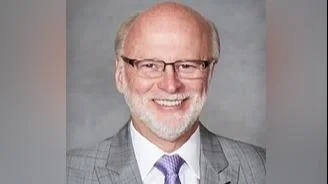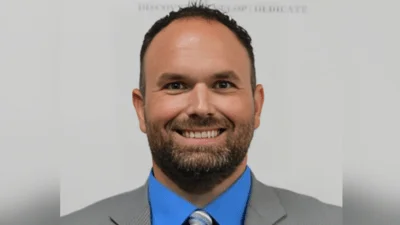'Daily Herald' editorial: Time to think outside box to end budget impasse | Contributed photo
'Daily Herald' editorial: Time to think outside box to end budget impasse | Contributed photo
The Daily Herald called for creative solutions to the budget stalemate in a recent editorial.
With the continuing impasse on the state budget, suggestions have ranged from locking lawmakers in the Capitol until they produce a budget, to implementing rank-and-file work groups.
While the various schemes to force the head lawmakers into producing a viable budget are generally impractical, the ongoing power struggle between Gov. Bruce Rauner, Speaker of the House Mike Madigan (D-Chicago) and Senate President John Cullerton (D-Chicago) has prevented the state from moving forward with a full budget.
The budget crisis began long before the election of Rauner in 2014. The General Assembly has not produced a balanced budget since 2001. When Rauner was elected, he came into office with a "Turnaround Agenda" that included reforms that would allow legislators to cut costs while making the state more business-friendly. Stopping the exodus of businesses and workers would increase the tax base and provide more revenue.
Madigan, however, opposed Rauner's proposed reforms and his budget plan. As the House speaker, Madigan controlled the bills that moved from committees to the floor for votes. With a Democratic majority in both the House and Senate, it has been nearly impossible to move legislation forward without Madigan's approval.
The General Assembly passed 20 budget bills in May 2015. Rauner vetoed 19 and signed only the education funding bill. The state struggled through the remainder of 2015 and into 2016 without a budget. Illinois continued to languish as the state leadership refused to negotiate a budget.
At the end of May, Madigan presented a budget to the House. The all-or-nothing bill passed in a few hours, but was voted down in the Senate. The proposed budget was $7 billion in the red, despite the constitutional requirement that expenditures and revenues must balance.
While the General Assembly managed to pass a temporary "stopgap" budget in late June, it only provided funding for some essential services and education, and it expires Dec. 31. As part of the negotiations, it was understood that pension reform would be addressed when the legislature reconvened for its veto session in late November and early December. Despite the agreement, no movement was made on pension reform. In response, Rauner vetoed the $215 million Chicago Public Schools (CPS) teacher pension bailout bill.
"The agreement was clear: Republicans supported Senate Bill 2822 only on (the) condition that Democrats re-engage in serious, good-faith negotiations," Rauner said in his veto message. "Despite my repeated requests for daily negotiations and hope to reach a comprehensive agreement by next week, we are no closer to ending the impasse or enacting pension reform."
In response, Cullerton denied that there was any agreement linking the CPS bill to pension reform. While the Senate immediately voted to overturn the veto, the House fell short, and the veto stands.
Budget negotiations continue behind closed doors, but it appears that they mostly consist of finger pointing and laying blame. If a new budget is not in place by the end of the month, funding that supports services for Illinois' most vulnerable citizens will end.
"Democratic House Speaker Mike Madigan seems happy enough to let universities and social services twist in the wind if a budget can't be reached by Dec. 31," the Daily Herald editorial said.
The editorial went on to suggest that House Democrats vote against Madigan's re-election as speaker. A new speaker of the House may be more amenable to reasonable negotiations and break the budget impasse. As the Daily Herald warned, if the state's leaders don't find a way to bridge the gap, they may be inundated by creative -- and wacky -- ideas to resolve the state's budget issues.






 Alerts Sign-up
Alerts Sign-up